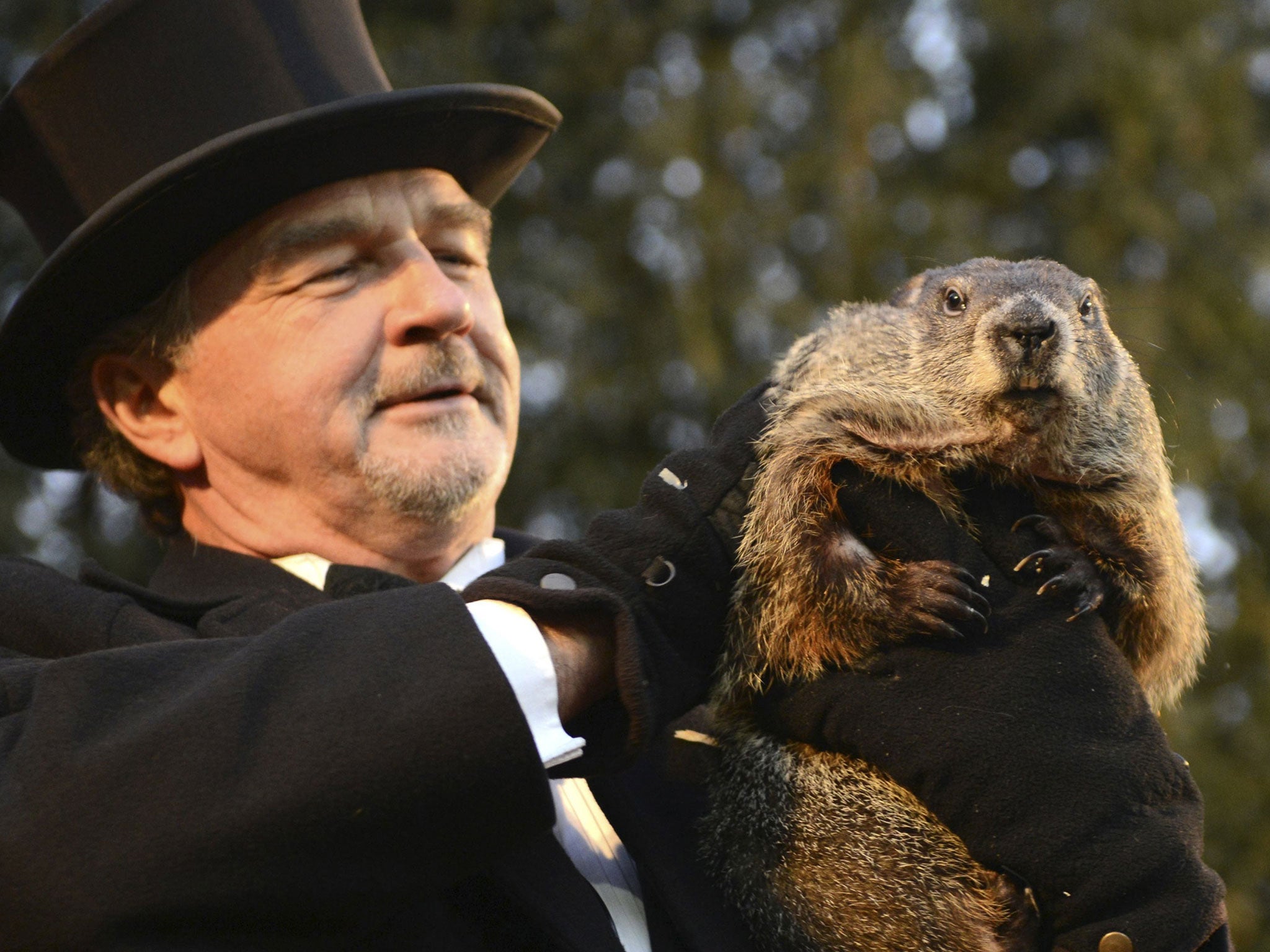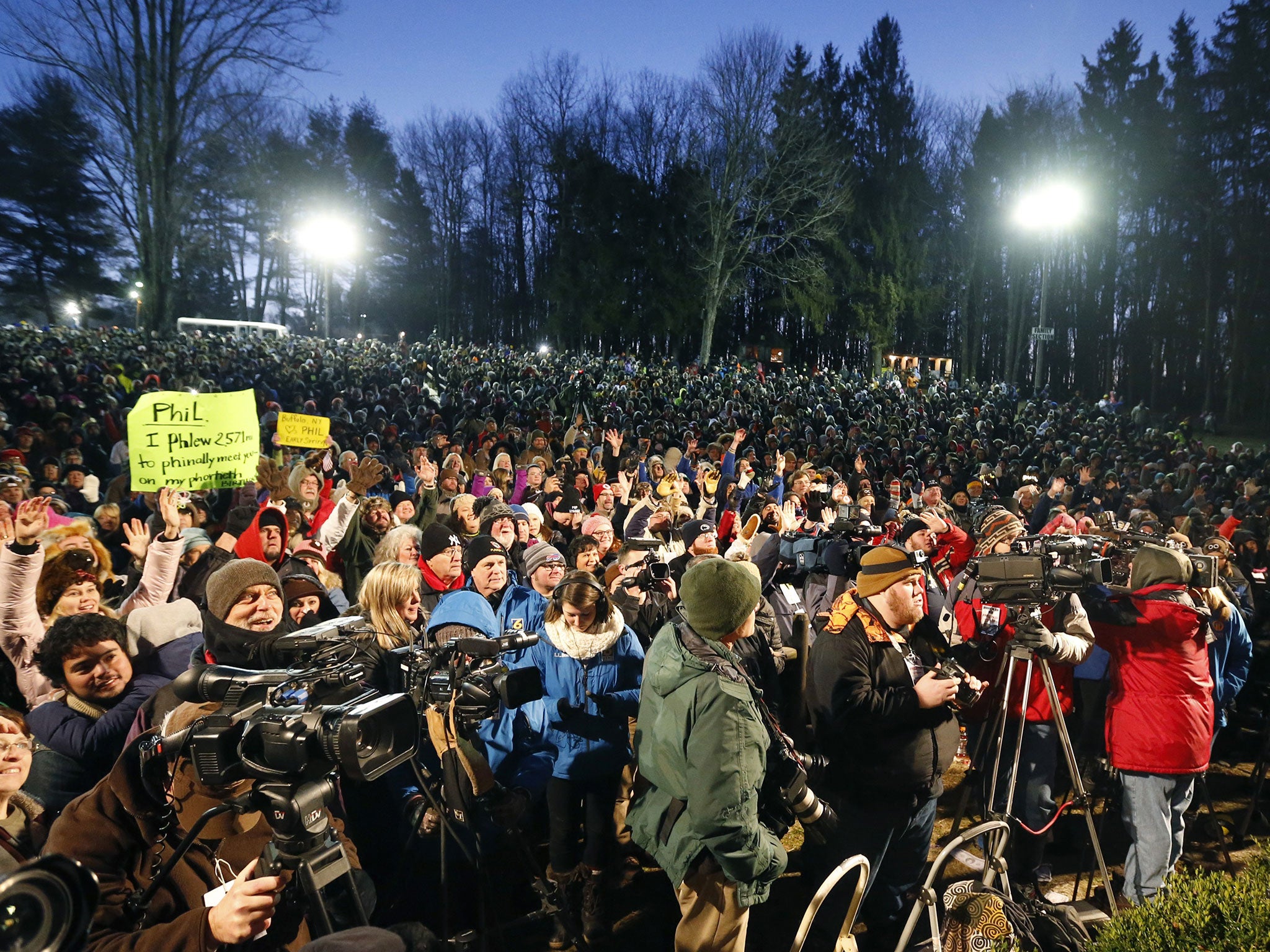Groundhog Day: Punxsutawney Phil predicts early spring after not seeing shadow
But how often is the tradition right?

Groundhog Day is upon is, and as a result the eyes of all superstitious Americans have turned to the small town of Punxsutawney, Pennsylvania.
As part of the genuine, 129-year-old tradition made famous by the Bill Murray film of the same name, Groundhog Day sees a small rodent entrusted with the task of predicting the next six weeks’ weather.
Punxsutawney Phil emerged from his artificial burrow shortly after 7.20am and, it reportedly being a bit cloudy, was unable to see his shadow.
That, local “official” Bill Deeley declared, means the US will experience an early spring this year.
The tradition has it that if the groundhog can’t see his shadow, it means warm weather is on the way. If he can, the winter is expected to be particularly long and harsh.
So should we listen to Phil? Some suggest he has a tendency to get it right – but largely because he normally predicts a longer winter which just so happens to coincide with the astronomical calendar.

The NOAA has plenty of information on the annual antics at Gobbler’s Knob, and its analysis suggests Phil has only been right in recent years just 45 per cent of the time.
There are, however, few studies available on how Punxsutawney Phil’s predictions are impacted by global warming. Asked if he “believes in anthropogenic climate change”, the groundhog appeared to dodge the question.
Join our commenting forum
Join thought-provoking conversations, follow other Independent readers and see their replies
Comments
Bookmark popover
Removed from bookmarks